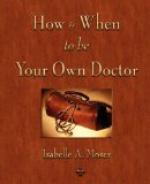Most of us don’t need to eat salt as a nutrient. There’s enough sodium in one dill pickle to run a human body for a year. There’s enough natural sodium in many types of vegetables to supply normal needs without using table salt. Perhaps athletes or other hard working people in the tropics eating deficient food grown on leached-out depleted soils, people that sweat buckets day after day may need a little extra sodium. Perhaps. Not having practiced in the humid tropics myself, I have no definitive answer about this.
Unfortunately, the average American is entirely addicted to salt and thinks food tastes lousy without it. To please the average consumer, almost all prepared foods contain far too much salt for someone suffering from exhausted adrenals. Interestingly, Canadians do not like their foods nearly as salty as Americans, and prepared foods like soups and the like in cans and packages that look just like the ones in American supermarkets (though with French on the back panel) have to be reformulated for our northern neighbors. I’ve observed that Canadians are generally healthier than Americans in many respects.
We would all be far better off consuming no salt at all. Those with allergies or asthma should completely eliminate it for a month or two and discover if that simple step doesn’t pretty much cure them. The trouble is that bakery bread is routinely two percent salt by weight. Cheese is equally salted or even more so. Canned and frozen prepared food products are all heavily salted. Restaurant meals are always highly salted in the kitchen. If you want to avoid salt you almost have to prepare everything yourself, bake your own bread, abstain from cheese (though there are unsalted cheeses but even I don’t like the flavor of these), and abstain from restaurants. My family has managed to eliminate all salt from our own kitchen except for that in cheese, and we eat cheese rather moderately.
Sugar is a high-caloric non-food with enormous liabilities. First, from the viewpoint of the universal formula for health, no form of non-artificial sweetener carries enough nutrients with it to justify the number of calories it contains, not even malt extract. White refined sugar contains absolutely no nutrients at all; the “good” or “natural” sweets also carry so little nutrition as to be next to useless. Sweets are so far over on the bad end of the Health = Nutrition / Calories scale that for this reason alone they should be avoided.
However, healthy people can usually afford a small amount of sin; why not make it sweets? In small quantity, sugars are probably the easiest indiscretion to digest and the least damaging to the organ systems. Although, speaking of sin, as Edgar Guest, the peoples’ poet, once so wisely quipped, (and my husband agrees) “Candy is dandy, but liquor is quicker.” Sugar is a powerful drug! People who abuse sweets set up a cycle of addiction that can be very hard to




